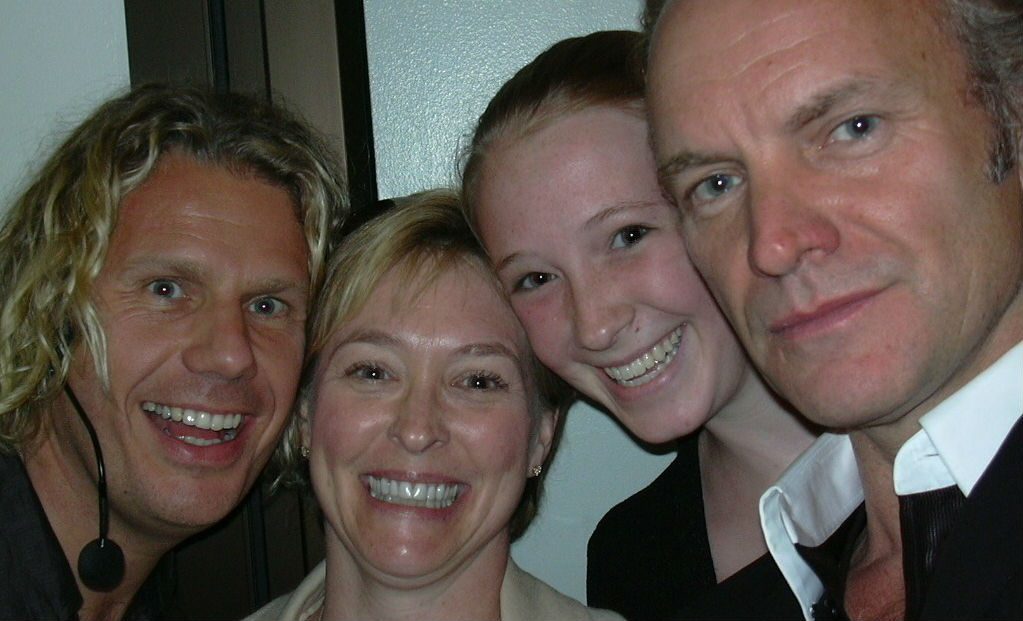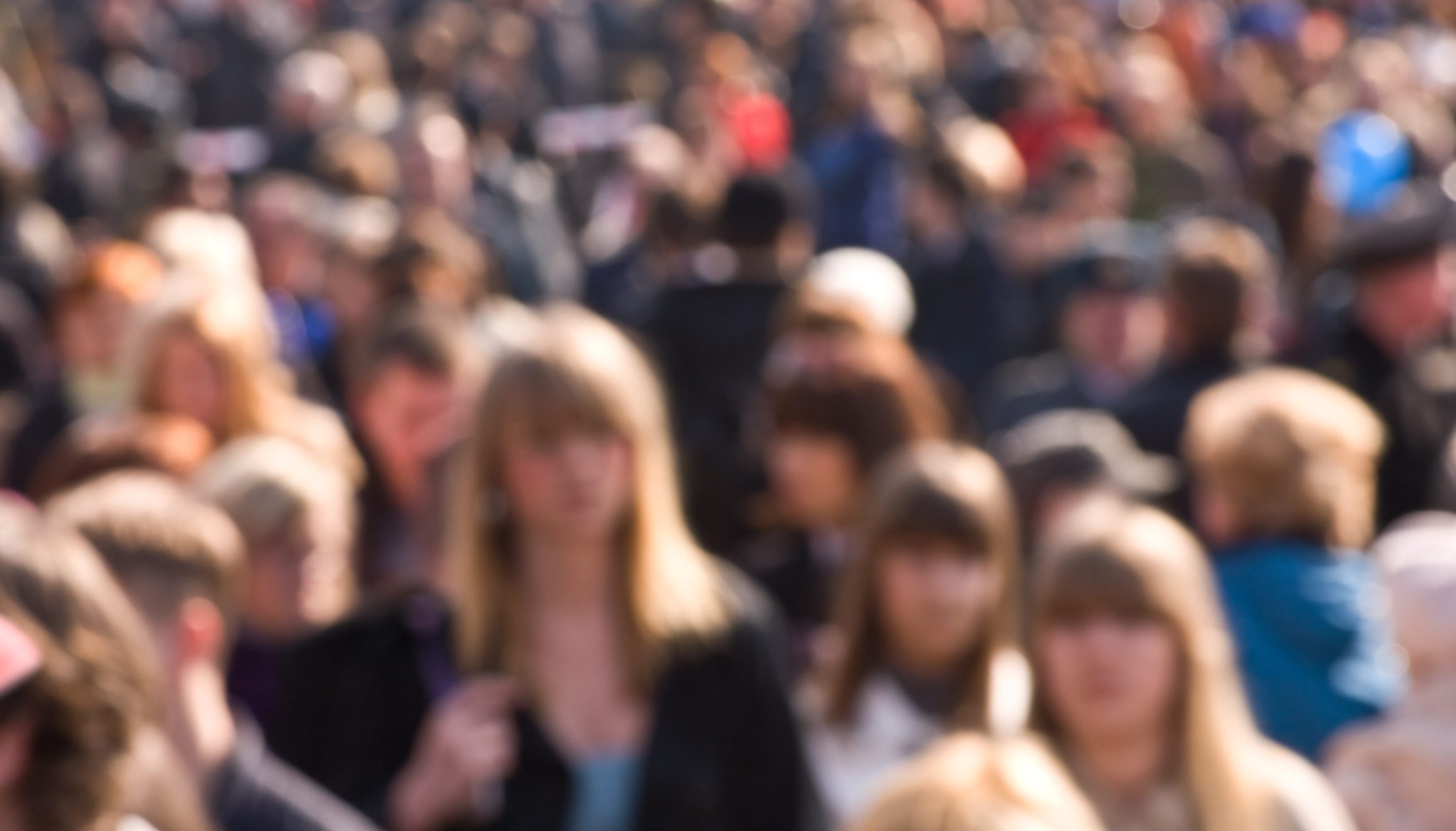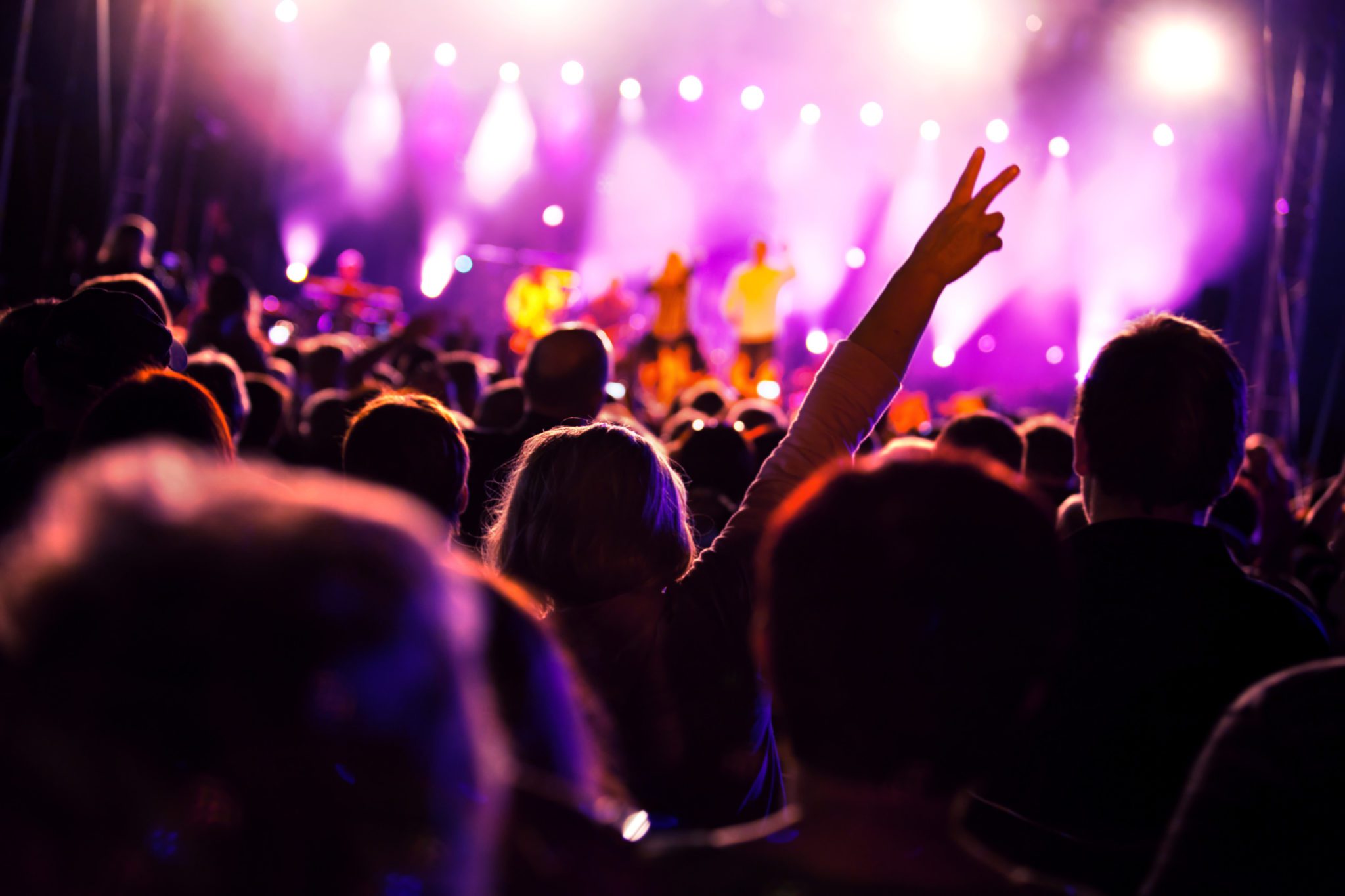Concerts: A Survival Guide
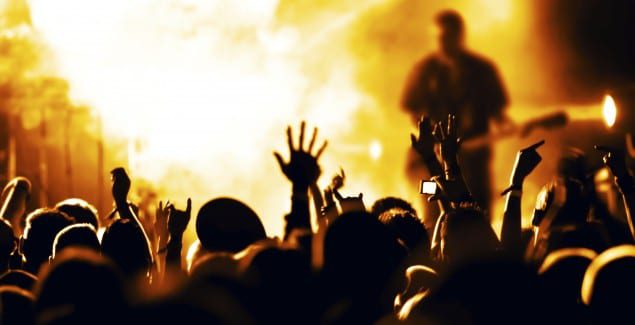
Posted in: Hot Topics, Podcast, Teenagers, You & Your Family, Young Adults
Topics: Addiction & Substance Misuse, Healthy Living
Intro music written and performed by Dr. Gene Beresin.
Outro music performed by Dr. Gene Beresin.
Almost Famous, Cameron Crowe’s wonderful movie about sex, drugs and rock n’ roll, has many lovely and poignant moments.
Indeed, the whole film can be seen as a carefully-written love letter, with just the right tincture of melancholic nostalgia, for the role that live rock and pop music concerts play in the various ways we come of age in the Western World.
But, for the purposes of this piece, we’d like to draw your attention to two somewhat opposing views of live music concerts that, in fact, set up the central conflict in the movie, as well as the conflicts that we endure as parents and adults as our kids prepare themselves for another summer of rock n’ roll.
In the very beginning of the film, the older sister decides to make her way to San Francisco. Her single mother, a professor at the local college, does not approve of her daughter’s decision, and she blames the music that her daughter listens to as the primary culprit for her daughter’s new-found drive toward independence. In her efforts to prevent her son from falling prey to the same unholy forces that nabbed her daughter, the mother forbids her much younger son from listening to the same dangerous stuff. (hilariously and even sweetly, the mom manages to object to the dangers of Simon and Garfunkel). Not to be thwarted, the older sister brings her innocent little brother into the living room to reveal that she has left her entire vinyl record collection hidden under his bed.
“Look under your bed,” she whispers. “It will set you free.”
Soon our young protagonist is predictably caught up in the Siren’s Song of the live music scene, and, although he is not yet old enough to drive, he lands a gig as a rock journalist covering a band called Stillwater. His mother drops him off at the concert parking lot and offers him what is, of course, redundant advice. “Don’t take drugs!” she yells into the crowd. And all of the kids mulling around outside the arena repeat her advice with mocking laughter. Our protagonist turns and walks boldly away from his mother, into burgeoning adolescence and electric guitars.
These scenes work in the movie because they bear such close resemblance to the very worries and aspirations that characterize live concerts for parents and teens. Indeed, the extent to which we wring our hands as we contemplate our own rock n’ roll memories is driven at least in part by the fact that these experiences are fraught with conflicted feelings. We want our kids to enjoy the freedom and energy that happens at concerts, but we don’t want them getting to that blissfully free place by doing the same dumb stuff we did (or worse!). After all, many of us are haunted by our near misses.
And therein lies our conflict.
This time of year, as Live Nation, Ticketmaster, StubHub and various other ticket outlets start to advertise one show after another, Gene and I both receive nearly weekly inquiries from our patients and our patients’ parents about what advice we might proffer to help kids navigate these events unscathed and in one piece. If you consult the medical literature, it actually sounds kind of scary; there are ripe warnings for everything from hearing loss to drug overdoses. This isn’t obviously surprising, but it does make us realize that, like much of adolescence, concerts remain a place where—albeit rarely—really bad things can happen.
Both Gene and I love music. Gene is himself an accomplished musician (he wrote and/or performed much of the music on our podcasts!) But, alas, Gene grew up in what I deem to be a kind of golden age of live music. I can’t even fathom walking into a coffeehouse and getting to hear Bob Dylan alone with his guitar. Gene even attended, for goodness sakes, the last show ever that Jimi Hendrix played before his untimely death.
But me? I came of age in the greasy era of big hair, big money and flannel shirts. I loved seeing Foreigner and Styx in concert, but it sure wasn’t the 60s.
Still, there’s a Venn diagram for both of these eras, and that diagram persists today. It doesn’t matter if it’s 1968 or 1986—the same rules apply. We’re going to outline these rules below, but first, take a moment to listen to our podcast at the top of this post. That’s where we go into the hopefully-not-too-gory details of our own concert experiences and couple those experiences with lessons learned.
The rules and how to frame them for your kids
First, remember that your kids aren’t listening to your quiet, contained voice (hopefully much more measured than the mom in Almost Famous). No matter how calm and collected you may be, your teen is likely to hear you screaming.And in fact, your inner emotional state may well be screaming with fear no matter how measured you present things. So, one key fact to remember: Your presentation is almost as important as the messages themselves – maybe more important!
These kinds of conversations are never useful right before your kid is marching out the door. They are best set aside for other times, and usually on multiple occasions. And, they are often best initiated when unplanned. The last thing your teen wants is “a meeting,” which typically means to him or her “a lecture.” So, why not wait until you hear of a tragic story on the local news, or in your neighborhood? There are ample opportunities to discuss safety issues in the context of a news story.
1. Who is driving?
It’s a really good idea to start the observance of designated drivers way before your kids are gearing up for concerts. If they hear discussions between parents and other adults about designated drivers early on, it becomes a norm of safety. A key principle here is to make all recreational activities that could possibly involve the use of alcohol a standard for such conversations.
When you ask your teen who the designated driver is (even though you’re NOT condoning the use of drugs or alcohol), present it in the light of “just in case you end up in an uncomfortable situation.”
And, it’s always important to add that “you can always text or call me if you are in a situation where getting home is not safe. Tell your friends in whatever eye-rolling way you like, that your dad said you are to be picked up by him.”
2. Drugs and peer pressure
As parents, we should expect that a variety of drugs will be accessible at most concerts. This does not mean that your kid will take them, but there may be peer pressure and temptation.
Saying “you are NOT to use drugs,” or “if I find you using drugs, you are in BIG trouble” is unlikely to work. In fact, it may tempt some kids to cleverly find out how to one-up you. Instead, wonder with them what they would say or do if offered. Make it a conversation. And, you can always ask them what they know about the potential dangers of certain drugs.
I remember my mom used to say, “If Joey jumped off the Brooklyn B ridge, would you?” I hated hearing that. Hey, why the Brooklyn Bridge, and what does that have to do with my life? The point, however, is a good one. In your conversations (again, not right before an event like a concert) remind your kids that some may do stupid things without thinking. Following is easy; saying “no thanks” is hard. Most kids, however, would acknowledge that if they say no, they don’t typically get dissed. More often than not, they get respect.
Remember that adolescence is experienced developmentally as the beginning of adult identity formation. As such, kids are playing with the dynamic of wanting to be part of the group, but also caring about their individuality. Kids who say no to alcohol or drugs are never excluded from the crowd. Rather, they are just seen as kids who don’t do those things. So, is that so bad?
3. What if your kid asks about your drug use?
As we stated in the podcast, this topic typically requires diversion, even if you never used drugs. It’s not cool or honest to say, “Hey, I never inhaled.” Rather, say something like, “What I did or didn’t do is not the issue. I may have made mistakes, and looking back, I did in many ways. What is important here is what you should or shouldn’t do.”
You might ask if they know of kids who have overdosed, done the wrong mix of drugs and alcohol and ended up in the emergency room, or even gotten caught by the police and now facing charges. Most kids will think, “That would never be me!” But you might say, “Look, I know that it’s really easy to think that you will not have a serious medical reaction or get caught by the authorities. But what if something bad did happen to you? It might mean really bad consequences, like going to the hospital, or being on probation for a long time.”
Remember that teens’ brains are not fully formed, and they act impulsively based on a momentary emotional reaction. It would be really helpful for you to say, “You may be tempted to do one thing or another, but my best advice, no matter what you decide—because let’s face it, you can do whatever you want if I’m not there to stop you—is take a time out. WAIT and think about things for a few minutes first. Then, if you make your decision, it’s on you. I’m just riding shotgun.”
4. What if you object to the music?
Music is music. We may like it, or we may hate it. I know when jazz first came out, the classical fans deemed it a perversion of music. Same for ragtime. Our own opinion is to pick your battles, and the one on music is not worth fighting.
Sure, some tunes may have foul language or violent content. So did many of the protest songs of the 60s. But no music makes kids bad. It may be part of how they identify with and express their anger at society and authority, or help them bond with others.
Remember, many fairy tales and Walt Disney movies are violent and horrifying, but they don’t turn our kids into murderers—neither the wolf in sheep’s clothing, nor Simba’s uncle.
5. Safety
It’s always wise to say “be safe.” Safety is a universal concept that does not just apply to concerts—it applies to driving, taking the subway, managing sexual encounters, using the Internet and many other experiences in our world.
Kids want to know that we, their parents, are also going to be safe. It’s a common thread throughout development, from looking both ways before crossing the street, to wearing seat belts, to doing the right, measured thing at a concert.
6. How to pay for it all
Concerts are incredibly expensive. Some parents might tell their kids that they will pay the freight if the teen demonstrates safe, responsible activity. This is fine, and for some may be an incentive. But remember: It’s is very easy for them to lie, then feel terribly guilty.
It’s often a good idea to find ways for your kids to help support these very expensive activities. But by all means, help them find a way if you can.
Conclusion
The bottom line is this: Concerts are a major form of kids bonding with each other, and developing a sense of personal and communal identity with music at its core. We all remember “our song” when we first fell in love. It had meaning. It was really important.
Going to concerts is part of this sense of identity, separation from parents, and learning to navigate potentially dangerous waters. But concerts these days are far safer than letting your kids venture into a bad part of town late at night. There are protections, guards and guidelines at most concerts.
Like most things we parents must endure, one is letting our kids grow up and fly on their own. They will learn from their own near misses or from the tragedies they will inevitably hear about.
We need to find ways to make their concert experiences positive and seminal in their developing lives.
Was this post helpful?
Newsletter
Subscribe Today
Your monthly dose of the latest mental health tips and advice from the expert team at The Clay Center.
SubscribeMultimedia
Quick Jumps
Tag Cloud
-
addiction
ADHD
adolescents
anorexia
anxiety
autism
behavior
CBT
child development
children
college
communication
covid-19
depression
digital media
dyslexia
eating disorder
evaluation
family
fear
healthy development
learning
learning disabilities
learning disability
mental health
mental illness
parenting
parents
Podcast
PTSD
relationships
resilience
school
shrinking it down
social media
stigma
stress
suicide
technology
teenagers
teens
therapy
trauma
treatment
violence

 Share
Share Tweet
Tweet

